If you’re only just tuning in, I recently announced that I’m serializing the opening chapters of my second book, “The True American,” over the coming days here. The introductory post explaining this virtual book club is here. Today, the seventh installment in the series.
THE CHORE (continued)
When Tom Boston hired Mark Stroman in ’94 and took him under his wing, he offered the job with a condition: “If you’re going to be in a position where you’ve got to meet with people on a daily basis in the front office, you’re going to have to cover those up.” The “those” were Stroman’s rambling tattoos.
The body shop was in the sparse northern margins of the city, in a building typical of the neighborhood: a low, wide matchbox that clutched the ground and avoided having too many windows. Tom remembered Mark coming in off the street one day and filling out an application. He said he’d been working over at a body shop named The Body Shop. He’d started as a detailer over there and rose to the rank of manager. But he and a bunch of the guys weren’t happy with the place. There was no room for expansion, he said. He wanted to run his own crew, but he’d take anything at this point. He was straightforward with Tom about his prison record, which he perhaps didn’t realize was a bonus for a boss who fancied himself a reformer. Mark was bubbly and energetic, with a drive that Tom had always found missing from the industry. He had smoldering red hair and energetic eyes and ruddy, protruding cheeks and an easy, goofy charisma, and those sprawling tattoos.
Although they ranked not far apart in the layers of Dallas society, Tom and Mark thought of themselves in starkly different terms. Tom saw himself as better than his surroundings — an educated man who owned a body shop by choice. Mark, by contrast, had few of Tom’s pretensions. Unlike Tom, he took pride in being a run-of-the-mill guy with run-of-the-mill ideas and tastes. There was a widely circulated manifesto of sorts, sometimes called the “Bikers Creed,” that Stroman liked and sent around to friends. He gave it the alternative title “American Me,” and it gave a flavor of his red-blooded self-conception.
The “proud American” described by the creed was a patriot who liked his cars, motorcycles, and ladies domestic. He relished a burger and fries like everyone else and drank regular coffee, not the fancy stuff that tasted like pancakes or fruit. He enjoyed the smell of rain, of bacon, and of auto fumes. He made no apologies for his love of naked women, in print or in person, and thought Hugh Hefner more of a revolutionary than Washington, Jefferson, or Lincoln. He liked country music and hated child molesters. He continued to say “Yes, sir” and “No, sir,” no matter how old he got. He confessed to being confused about sex at times but was far from sexually confused. He believed that most of us do the best we can with what we’re given and usually get what we deserve, and that just holding on could be as important as winning. He tended to trust his country more than his government. He thought America — its blood and culture and soul — ought to be preserved as it was, not perennially remade. He believed that if you didn’t like America, you were free to leave it.
As it happened, this bleeding heart of an ex-con called Stroman had come to Tom Boston at the right time. “Managers in body shops are usually good for about a year, and then they either get comfortable or burn out, or they want to go someplace else,” Tom said. “So I was getting rid of one at the time that was in that situation and was looking for guys — somebody to run underneath me.” What he needed in particular was a good estimator: a guy who could be personable when customers came in, who could type the estimate into the software form they used, who didn’t need it explained that insurance will reimburse one hour of labor for a dent the size of a quarter and four hours for something as big as your palm. When Stroman turned up, Tom sensed that he had found his guy. Mark was hungry and wanted to learn. Tom hired him and quickly discovered him to be “one of the most ambitious individuals that I have ever met,” a climber in a pit of screwy laterals.
Tom trained his new protégé by taking him on sales missions, which meant wining and dining guys at Thrifty and Alamo and the other rental agencies, so that they’d think of A Paint and Body Shop when customers brought back banged-up vehicles. It might be lunch or dinner at the Sheraton by the airport or after-hours at the titty bar. Tom would manage the selling while his twenty-five-year-old apprentice, dressed in a white shirt and slacks, sat beside him in silence. Soon Mark had the handle of it, though, and he began making sales calls on his own. He took over the rental business, driving out to the airport most days to do estimates and then, via walkie-talkie, coordinating pickup and delivery of the vehicles by his colleagues. It wasn’t simple work; you had to keep a lot of moving parts in your head at once. Stroman was making $500, $600 a week. Aside from a few red flags that Tom Boston somehow minimized at the time — like the time they lost the Dollar rental account because a company hotshot happened to be visiting Dallas, he happened to be Black, and Mark happened to call him a “fucking nigger” — the boss was thrilled with his new hire.
Mark proved himself a natural leader of the shop’s ordinarily anarchic men. In the cavernous garage, the guys listened to shrieking guitar orgies all day while spray-painting and forklifting and undenting the exteriors of cars, pickups, and semis. They either lunched out or ordered in to the back room, which was routinely thick with cigarette smoke. Mark had, as promised, brought guys over from The Body Shop. He ran the front office for a while and coordinated separate day and night shifts, which allowed the shop to start running around the clock. Over time, Tom gathered that Mark had wanted to leave the other place because he was trying to shake his old heat-seeking ways. The life of boozing and girls and fine powders was OK for the screwup he’d been when he surfaced from prison in ’91, all of twenty-one and utterly alone; it was sustained by knowing the wrong guys at the last job. But now Mark had a wife and a daughter whom he bragged about to Tom. He wanted to show them that things could be different.
For a year or so, Mark earned steady checks, led a squad of men, and rose in Tom’s esteem. Then somehow he reverted. “Mark started going off in the other direction again,” Tom said. “He had money, and he was going out and partying with the guys — kind of leaving the old lady at home.” Tom observed that Mark handled his work fine during the day but was running with what he called “radical” people or “druggy troublemakers” after hours. Tom claimed to be shocked to learn that Stroman’s change of heart had been contagious among the staff, turning his body shop into a kind of drug den: “At that time, I didn’t really know. I was kind of green when it came to all that. I felt stupid after a while, because then I found out what everyone was doing at my place of employment. I was like, ‘What the hell?’ I didn’t know that shit was going on. There was ecstasy, there was acid, there was cocaine, there was meth. There was everything.
“Here I’m a fricking race car driver, so I’m lean and clean, and I didn’t stay into that loop,” Tom said. His emphasis could sound a bit like protesting too much: “I mean, smoking dope is one thing. At noon, employees would smoke dope. It’s like cigarettes to me. I never really considered that a problem drug, so to speak.”
Tom remembered a turning point in Stroman’s tenure: the time one of his radical friends, a guy named Phillip with long red hair, shot himself or got shot — one way or another, the guy ended up slumped in a bathtub. With Phillip gone, Mark felt hollow and lost. Tom remembered him getting a new tattoo to commemorate his friend. He and some guys went down to the grave site, drank some beers and made memories. The incident stuck in Tom’s mind. “I guess that was the time that I really saw that he just started going off on a different path,” Tom said.
It was around this period, ’96 or so, that Mark’s wife, Shawna, walked out with their young daughter. It was said that she took much of the apartment with her. She’d been threatening it for a while and had warned him to straighten up. At the start, she hadn’t known what a drug head she’d taken on.
Mark couldn’t hide his devastation from Tom: he was “broke up about his wife, losing his kid — pretty broke up. Very depressed. Sad and depressed. Seemed like he didn’t give a shit about anything anymore.” Mark fell down a manhole of depression. At times, his sadness exploded into untamable anger. Like the time that restaurant cook came in with his truck. “Mark had brought the guy in, that’s how I met him,” Tom said. “Did the custom paint job. But apparently he was one of Mark’s drug connects at the time, and they got crossways.” Two weeks after Tom finished the job, he heard that Mark, still reeling from the breakup, had stuffed a fuel-soaked rag in the truck and “burned it to the ground.”
Tom also remembered Mark starting to work out at a nearby gym known for its performance-enhancing expertise, and the boss suspected that his employee’s growing temper and the tension in his face were related to that: “He was really short and just real pissy and real aggressive. I guess that’s when he was starting to do the working out. He was going to pump iron, but he was doing steroids.”
One of Tom Boston’s other reform projects, also at the body shop, was a guy named Mitch Fayette — ponytailed, except for the long strings of blond hair dangling down to frame his face, and with a penchant for T-shirts cut off at the shoulders. He was about the same age as Mark and partied with him through the ’90s. They had been together through all of it. But after Shawna left, Mark’s behavior started scaring Mitch, who was no pansy. He remembered Mark doing lots of drugs, staying up till tomorrow night after night, hanging with the lowlifes and the bikers and people of that nature. Mark had long dabbled in chemicals, but this was more extreme. “He was hurting on the inside, and because he was hurting on the inside, he looked for a way to escape. And he started doing drugs, dating titty dancers, and that leads you down a vicious life of staying up till two o’clock in the morning and picking them up and partying with them all night and going right back to work the next morning. And then it became a vicious cycle like that. Life began to get out of control,” Mitch said.
A propensity for fighting that Stroman was trying to shake when he came to Tom Boston — a tendency he had battled since childhood and then managed to suppress — now seemed to return. “If he liked you, you were golden,” Mitch said. “But he was a rude, aggressive person. He would fight at the drop of a hat. Didn’t even matter — didn’t care how big they were, who they were, or what was going on. And he told me the same way out of his mouth, he said, ‘You can’t do anything worse to me than’s already been done to me. They locked me up; they kicked me in the corner like a bad dog — you know, with people getting raped and killed all around. So I ain’t going back there,’ he said, ‘no matter what.’ ” The “there” that Stroman spoke of was prison.
Sometimes, Mitch said, Mark supplemented this vow with a pledge to die in what he called “suicide by police officer.” Were he ever to do something worthy of arrest — and it was not an unreasonable assumption that he would someday — Mark wouldn’t go back to prison. He had planned it all out: he would shoot at the officers, forcing them to shoot him. And it would be over.
Tom was sympathetic to TDC alumni like Stroman, as perhaps he had to be in this line of work: “They are a convicted felon, and they’re screwed up for life. They can’t get a job. They can’t do anything to better themselves. How do they expect them to do that when they’ve got a brand on them permanently for the rest of their life?”
Stroman was never direct with Mitch or with Tom about what had happened in prison. But this talk of suicide by police officer and other offhand assertions made clear that Mark’s two stints inside — each a matter of months on sentences that were supposed to last years, until luck and prison overcrowding spared him — had scarred him in unknowable ways. They had, depending on whom you asked, either turned him into a racist or amplified a preexisting hostility — although Tom always knew it was just talk. Suspected, at least. “That’s where he really got his racist stuff, because if you’re a Mexican in there, you better be with Mexicans,” Tom said. “If you’re Black, you better be with Blacks. It gets real gangy.”
Mitch, having known the same prisons, described it this way: “You could be the nicest white person in the world, not ever hate, not ever have any racial hate at all, and if you’re thrown in that environment, you’re gonna learn to hate.” He told a story he had heard about a Black man who goes to prison: a great athlete who talked like the “whitest guy you’ll ever meet.” When he arrived in prison, he got to talking with a white man. A Black inmate kicked the chair out from under him and warned him: “You need to get in where you fit in.” When the riots and fighting start, he told the newbie, you will understand. Mitch said, “It’s a different world in there, and it’s all politics.”
So maybe it started in prison, or maybe it predated prison — Tom Boston only got to know Mark in his twenties. Whatever its origins, Stroman developed a propensity to call people he didn’t enjoy things like “nigger-loving Jew,” whatever that was. Some of Stroman’s relatives refused to drive around with him because he would roll down his window and bark things like that. When Tom asked about Mark’s weekend plans, he would sometimes answer, “Oh, nigger hunting in Oak Cliff. Wanna come?” Somehow Tom convinced himself that Mark never acted on such talk. It was just sad, mostly — a blustery hankering for relevance by a man deserted by love, fortune, and history.
Besides, a part of Tom — though, as a college man and a family man and a business owner, his situation was different from Mark’s — understood at least a piece of it, understood that feeling of history’s leaving you behind. Tom wasn’t the type to harm anyone, and he had friends of different colors. For all his advantages in life, though, if he were to be honest, he sometimes felt himself faced with the same racial anxiety, the same sense of embattlement, confronting white-guy drifters like Mark Stroman in these changing times: a feeling that the old equations that had made it mean something to be white and a man, no matter how trifling a white man you were, no longer really computed.
“Well, nowadays, can you go out and qualify for government assistance? Can you get government-assisted houses? Can you get government loans? Can you get state contracts, federal contracts?” Tom said. “No. So much of it has to be Black. The company has to be woman- or Black-owned to qualify for all this stuff. The tables have turned to where the white community’s now the minority. You’ve got all kinds of differences out there, all kinds of things to contend with. Most of them use excuses saying they can’t get ahead.”
Tom went on, “Everybody’s supposed to have equal everything, but that’s not the case. You’ve got the Black community, reaching back a hundred years: ‘Oh, we were slaves; we’re owed this.’ And if you look at — I’m now generalizing — the stereotype of the Black community, you’ve got Oak Cliff: They’ve got big wheels and tires on their fancy cars, but they live in a shack. They’re crack smokers; they don’t work; they’re out there all in prisons — they’re full of them. You know, they’re just trashy-type people. Well, that’s not the case, but that’s the stereotype. The Mexican community — well, you got Mexican communities that are legal. They came over to our country, they’ve got families, they’ve done everything legal, but they get put in with people that are swimming across, jumping the border and living in the backs of trucks, coming over here and causing problems. They’re taking our money from jobs and sending them back to Mexico, and you’ve got a conflict there. And then you’ve got Arabs — Arabs come over. Well, you walk into a gas station and you’re wondering something, and they don’t speak English and you can’t understand them. Well, that difference right there pisses people off — I don’t care who it is. Or the Oriental community: If they can’t speak English and you can’t understand them, then that breeds a distance. That breeds some type of hatred.”
So it wasn’t that Tom didn’t get where his protégé was coming from when he mouthed off with that race talk. But he, unlike Mark, knew to keep those feelings in check — and to keep his mind on family and work so that it didn’t dwell in those darker places. One day Tom made a decision long in coming: he was better off as Mark’s friend than as his boss. However much he liked the guy, however much they got along, he couldn’t have a worker costing him accounts and burning down trucks he’d just painted.
“I brought him in and said, ‘Hey, dude, we’re friends. I don’t want to get crossways. It’s just come time that you’re going off a different path,’ ” Tom said. He told Stroman to take his time; he didn’t have to leave this second. Still, it was best that they part: “He wasn’t on the right track for what I had going at the time.” This was sometime in 1997. Stroman had worked there three-plus years.
Looking back, Tom wondered if he could have prevented the separation. He remembered warning Stroman, before the unraveling, “ ‘Dude, you can straighten your act up. You got your wife, you got your daughter, you got your stuff. You can stop hanging around all these people.’ I remember I told him, ‘You could follow the people in the limousine, or you could follow the people with the shopping cart. It’s your choice.’ ”
The above is the seventh of eight serialized excerpts from “The True American” that will appear in The Ink. Copyright 2014, W.W. Norton.
For the full book, find it below or wherever you get your books:
Indiebound
Audible audiobook
Amazon
W.W. Norton
Apple
Barnes & Noble
Books a Million
Bookshop.org

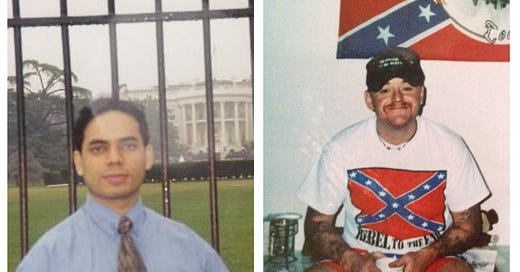




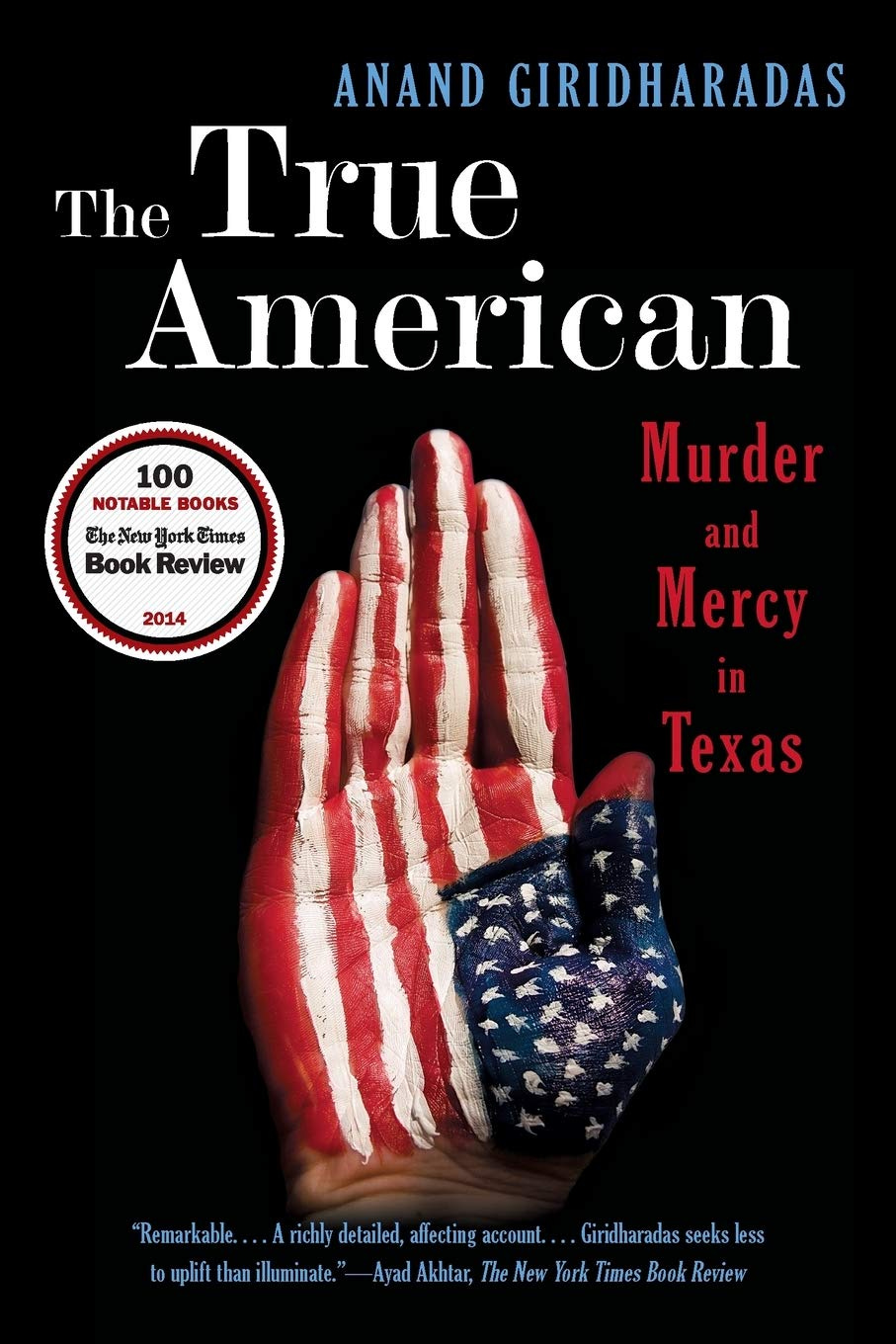

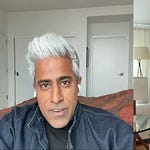


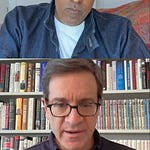
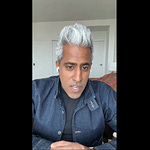



Share this post